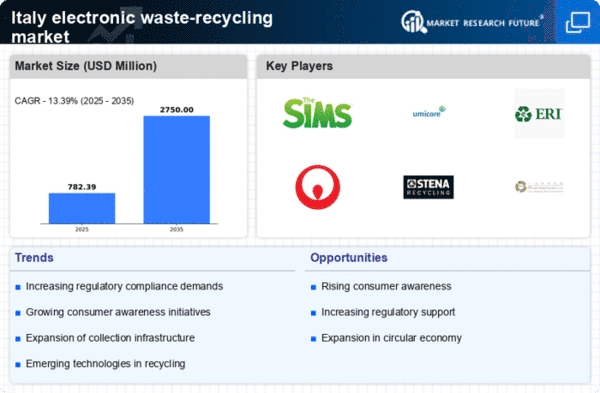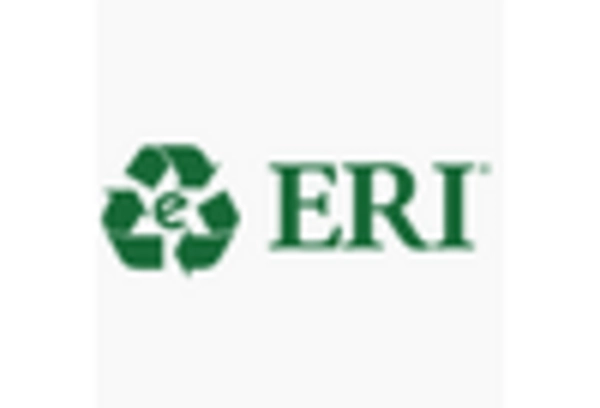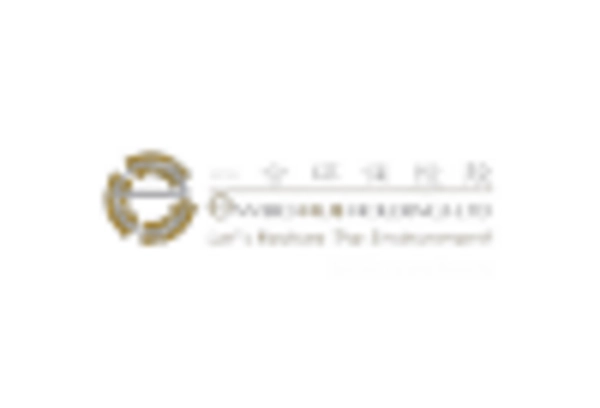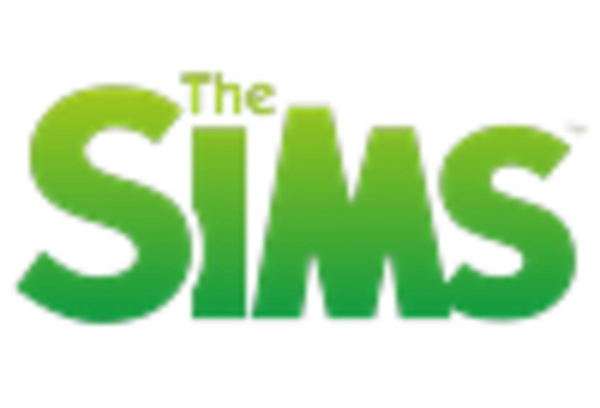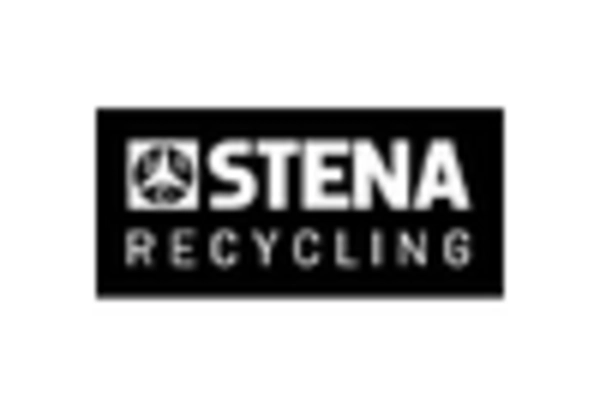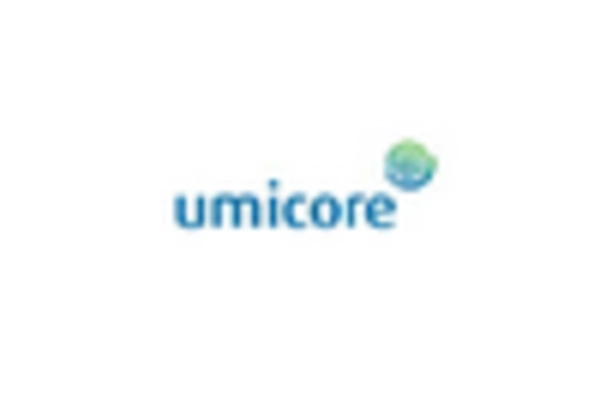Growing Environmental Awareness
There is a notable increase in environmental awareness among the Italian populace, which is significantly influencing the electronic waste-recycling market. As citizens become more conscious of the ecological consequences of improper e-waste disposal, there is a growing demand for responsible recycling practices. Educational campaigns and community initiatives are fostering a culture of recycling, encouraging individuals to participate actively in e-waste collection programs. In 2023, surveys indicated that over 60% of Italians expressed a willingness to recycle their electronic devices, reflecting a shift in consumer behavior. This heightened awareness is expected to propel the electronic waste-recycling market forward, as more individuals seek out recycling options for their obsolete electronics.
Increasing Regulatory Compliance
The electronic waste-recycling market in Italy is experiencing a surge in regulatory compliance requirements. The Italian government has implemented stringent laws aimed at managing electronic waste effectively. This includes the European Union's Waste Electrical and Electronic Equipment (WEEE) Directive, which mandates proper disposal and recycling of electronic products. As a result, businesses are compelled to adhere to these regulations, leading to an increase in demand for recycling services. In 2023, Italy reported a recycling rate of approximately 45% for e-waste, indicating a growing recognition of the importance of compliance. This trend is likely to continue, as non-compliance can result in hefty fines, thus driving the market further. The emphasis on regulatory adherence is expected to bolster the electronic waste-recycling market, as companies seek to avoid penalties and enhance their sustainability profiles.
Economic Incentives for Recycling
Economic incentives are emerging as a pivotal driver for the electronic waste-recycling market in Italy. The government has introduced various financial programs aimed at promoting recycling initiatives, including subsidies for recycling facilities and tax breaks for companies that engage in sustainable practices. These incentives not only encourage businesses to invest in recycling technologies but also motivate consumers to recycle their electronic devices. In 2023, it was reported that companies participating in recycling programs could save up to 20% on operational costs due to these incentives. As the economic landscape continues to evolve, these financial motivations are likely to enhance participation in the electronic waste-recycling market, fostering a more sustainable approach to electronic waste management.
Rising Consumer Electronics Usage
The proliferation of consumer electronics in Italy is a significant driver for the electronic waste-recycling market. With the increasing adoption of smartphones, laptops, and other electronic devices, the volume of e-waste generated is on the rise. In 2023, it was estimated that Italy produced around 1.5 million tonnes of electronic waste, a figure that is projected to grow as technology advances. This surge in electronic consumption necessitates effective recycling solutions to manage the waste generated. Consumers are becoming more aware of the environmental impact of e-waste, which is likely to drive demand for recycling services. The electronic waste-recycling market is thus positioned to benefit from this trend, as companies and consumers alike seek responsible disposal methods for their outdated devices.
Technological Advancements in Recycling Processes
Technological advancements are playing a crucial role in shaping the electronic waste-recycling market in Italy. Innovations in recycling technologies, such as automated sorting systems and advanced material recovery techniques, are enhancing the efficiency and effectiveness of e-waste processing. These technologies enable recyclers to recover valuable materials, such as gold, silver, and rare earth metals, from discarded electronics. In 2023, the recovery rate for precious metals from e-waste in Italy reached approximately 30%, showcasing the potential for increased profitability in the recycling sector. As these technologies continue to evolve, they are likely to attract more investment into the electronic waste-recycling market, further driving growth and sustainability in the industry.

